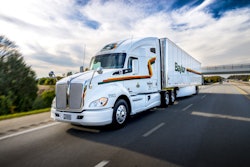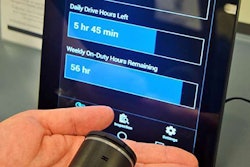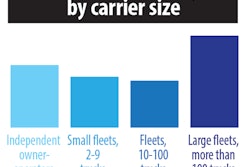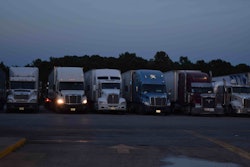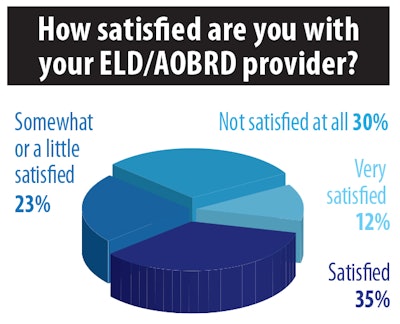 More than half of the fleets and independent owner-operators surveyed by CCJ and Overdrive in late 2018 showed scant to no
More than half of the fleets and independent owner-operators surveyed by CCJ and Overdrive in late 2018 showed scant to nosatisfaction with their ELD provider company’s service.
Bill Frerichs’ Illinois-based small fleet first invested in an e-logs system, an AOBRD, as he was headed into the first, late-2017 ELD mandate deadline. Since then, he says, the e-logs provider he utilized was bought out and consolidated under another umbrella company, and Frerichs had been reasonably happy with the performance of the devices.
Yet delays in getting replacement units when problems arose on three different occasions had him this summer canvassing for a potentially different supplier as he considered the transition from the AOBRD to ELD spec required in December.
Customer support from the provider, he said, “is missing a little something. They cannot keep up with the 8-day rule.” He’s talking about the 8 days the ELD mandate gives carriers and their drivers to utilize paper logs or logs software while attempting to repair or replace a malfunctioning device.
In response to demands from carriers shortly after the ELD mandate’s 2017 enforcement date came down, FMCSA opened up new routes toward expediting requests for more time to deal with delays from ELD providers, but the bedrock 8-day requirement remains.
Frerichs wants, ultimately, a commitment from whatever ELD company he’s dealing with to “consign two devices” to him, essentially for his parts shelf, “in case something goes awry. “Three times we have had issues that have taken anywhere from three to six weeks to get the replacement parts” to resolve, he says. With his contract with his original provider coming to end this fall, he found another supplier whose ELD is distributed via the local Volvo dealer through which he specs and orders his fleet’s tractors.
“It’s a front runner based on that,” he says. “I think I could go to them and [tell them] I want at least one or two systems down on my shelf and I don’t want to be charged for it until I turn it on,” for replacement security.
Customer service issues to consider when evaluating an ELD include the availability and quality of basic tech support when problems arise. Plenty of carriers are assigning more value to such issues in the wake of the mandate. Among carriers and independent owner-operators who switched from AOBRDs to ELDs prior to the mid-year Overdrive/CCJ survey about the shift, a fifth of them reported the early upgrade came as a result of switching ELD providers “after experiencing customer service or equipment problems.”
Some providers offer 24/7 support with offices both in the Western and Eastern hemispheres, such as KeepTruckin, among others.
Yet with some, it could be difficult to get someone on the phone when you need them. Customer referrals from any vendor might go a long way toward giving you a sense of how a vendor handles support effectively, or not, as you make decisions about providers.
It’s an important consideration. If you are unable to resolve a malfunctioning ELD promptly, as Frerichs emphasizes, and you or your driver spend a week on paper logs, you open yourself up to possible violations of the rule even as you request an extension from regulators. Reach out to FMCSA with the message that “’my supplier’s behind’ on the seventh day in the eight-day grace period, Frerichs says, and “it’s too late. They’re not going to accept that.”
That’s what he was told by his contact in FMCSA’s Illinois division office, he says.


